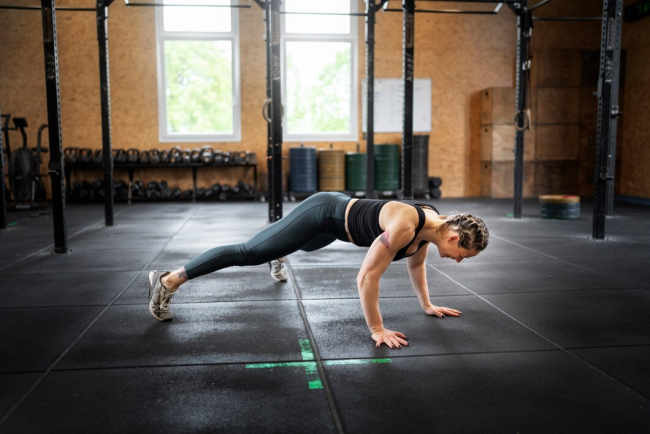In the context of fitness, timing your workouts can signify one of two things. The first one has to do with how often you exercise. You may, for inst
In the context of fitness, timing your workouts can signify one of two things. The first one has to do with how often you exercise. You may, for instance, schedule your workouts to take place in the morning before leaving for work. The second interpretation pertains to the process of timing your workouts and following a set of rules. Assuring that a certain amount of instruction is completed, say, in forty minutes.
Timing your workouts, for example, can prevent you from slacking off, engaging in excessive socializing, and losing momentum. By timing your efforts, you can accomplish more in less time and come to the realization that you don’t need to spend all day in the gym to see results. Timing is advantageous in terms of scheduling since it provides you with a clear course of action. There is no need to speculate or wonder. Instead, you are aware of what has to be done when.
A Moment You Can Trust
Timing your workouts provides you confidence in your abilities on the most fundamental level. You are aware of it. We have undoubtedly heard it. And for every time it has been uttered, there are a dozen more times when the concept alone has made someone give up on their quest to be fit. It makes sense, and hey, in a way, being busy is nice, so it might even be considered an image-builder. And yet, despite their busy schedules, even the most hectic people manage to make time for personal fitness. Please excuse the cliché. One of the reassuring aspects is knowing how long a workout lasts. It’s a terrific fact for putting away justifications and moving forward with improving yourself. There is less temptation to utilize this time-tested defense after you’ve seen what can be accomplished in the time you do have.
You don’t have to use much effort to do your everyday workouts or tasks if you don’t want to.
The amount of exercise you require each day depends on your lifestyle. Running, taking walks, and practicing yoga can all help you stay active if you’re older and don’t have a lot of job to do. However, if you’re a student and have to move around all day, you’ll need to complete a thorough workout to keep yourself active. Additionally, a workout depends on your fitness goals, so decide what they are and practice your exercises in accordance with them. If pushing yourself too hard is not making you feel better and you are hurting, stop. Follow your comfort and ease when doing it. If overdoing an exercise hurts you, you will detest it.
Don’t let the time do you; do the time instead.
Although children between the ages of 6 and 17 are advised to exercise for at least 60 minutes each day, sources like Harvard Health recommend that people exercise for at least 30 minutes each day. Overall, scheduling time for exercise in your day is essential because as soon as you become unorganized, you begin to find reasons not to exercise. Making excuses causes you to completely give up on the regime.
Here are a few brief hints to assist you in carrying your workouts plan:
1. Set Up a Daily schedule That Is Simple to Follow and Consistent:

When you repeat an action, your brain becomes accustomed to it and soon it ceases to feel like a job.
2. Bring A Partner With You:

Being in a setting where you can see people putting in a lot of effort around you inspires you to do the same. Invite a close friend, spouse, or children to join in the fun instead of using the gyms and community centers that are closed.
3. Keep it short and sweet:

In order to keep your workouts from taking too much time or causing overexertion, you can break them into pieces, each of which focuses on a different muscle group.
4. Early Bird Workout:

Although getting up extra early in the morning to work out may seem impossible, this is when your exercises will be the most effective. You can have the energy and motivation you need for the entire day with a good early-morning jog or workout.
Symptoms Of Overwork Can Impact Your Day-to-Day Activities.
If you overdo it, you won’t just start to detest working out; you’ll also start to get pessimistic about everything. It resembles what you observe when someone is about to become ill. Anger, irritability, and even depression are all present. You can have a weakened immune system and catch illnesses more frequently, but you’ll also wear out more rapidly from daily activities. It’s more prevalent than the typical weariness you experience after working out.
The duration of your workout should be determined by its difficulty. The amount of time you should spend exercising decreases as it becomes more strenuous. HIIT and other interval training techniques should make the session shorter.
Only count the time you spend exercising when determining how long to work out. The length of time spent in the gym is unimportant because you accomplish a lot of other tasks there, such as getting dressed, warming up, and cooling down. It all depends on how you feel.
Keep an eye on your resting heart rate if you have one. Your body is under stress if your resting heart rate suddenly rises. Do less of your workout.
Overtraining can actually cause muscle loss and an increase in fat tissue. It’s crucial to take care not to overwork your body and to relax in between sessions, unless that is what you want from a programme.

COMMENTS